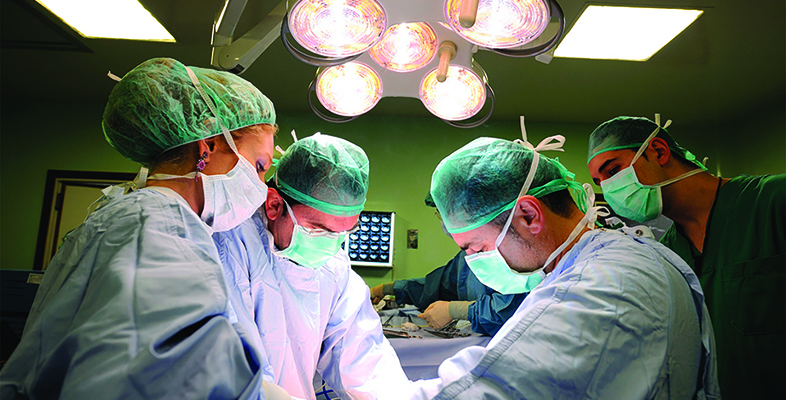Medicine training courses are a vital foundation for developing future healthcare leaders who can navigate the intricacies of modern medical practice. As the landscape of healthcare evolves with advancements in science and technology, the curricula are increasingly designed to be flexible and responsive to these changes, ensuring that graduates are not only competent but also innovative.
Interdisciplinary collaboration is a hallmark of contemporary medical education. Courses often integrate elements from fields such as public health, psychology, and ethics, creating a rich learning environment where students can explore the interconnectedness of various disciplines. This holistic approach enhances critical thinking and problem-solving skills, preparing students to tackle complex medical challenges from multiple angles.
Incorporating hands-on experience through community service projects has also gained prominence in medicine training. These projects expose students to real-world health issues, allowing them to engage directly with diverse populations. Such experiences foster empathy and deepen students’ understanding of the barriers many face in accessing healthcare. By working in underserved communities, students not only contribute to public health but also gain valuable insights into the socioeconomic factors that influence health outcomes.
The rise of personalized medicine is reshaping the curriculum in medicine training programs. As genetic and genomic advancements continue to transform diagnostics and treatment options, students learn about the implications of these technologies for patient care. Understanding the role of genetics in health and disease empowers future practitioners to offer more tailored and effective treatment plans, aligning with the growing trend toward personalized healthcare.
Ethical training has taken on renewed significance in light of rapid advancements in medical technology. As new dilemmas arise—such as those related to artificial intelligence in diagnostics, genetic editing, and data privacy—students are encouraged to engage in critical discussions about the ethical implications of their work. This prepares them to navigate the moral complexities they will encounter in their careers, ensuring they advocate for patient rights and uphold the integrity of the profession.
Furthermore, mental health corsi di formazione di medicina estetica per medici awareness has become an integral component of medicine training. Recognizing that healthcare professionals themselves are at risk for burnout and mental health challenges, many programs are implementing wellness initiatives that promote self-care and resilience. Training students to prioritize their own mental health equips them to provide better care to their patients and fosters a culture of well-being within the healthcare environment.
The importance of leadership and advocacy skills is increasingly acknowledged within medicine training. As future healthcare providers, graduates will often find themselves in positions to influence policies and advocate for systemic change. Training programs are incorporating leadership development into their curricula, empowering students to become advocates for their patients and communities. This emphasis on advocacy prepares them to engage in healthcare policy discussions and address the systemic barriers that affect patient care.
Global health training is another critical aspect of modern medicine education. With the world becoming more interconnected, understanding global health issues—such as infectious disease outbreaks, health disparities, and access to care—is essential. Many programs offer international electives or partnerships with global health organizations, providing students with opportunities to engage with health challenges on a global scale. This exposure fosters a broader perspective and encourages a commitment to addressing health inequities worldwide.
As technology continues to revolutionize healthcare, data literacy is becoming increasingly important. Medicine training courses now often include instruction on health informatics, teaching students how to analyze and interpret health data. Understanding how to leverage data analytics can inform clinical decision-making, improve patient outcomes, and drive evidence-based practice. This focus on data equips future healthcare professionals with the skills necessary to thrive in a data-driven environment.
Moreover, the integration of wellness and holistic care principles into the curriculum is gaining traction. Students are encouraged to consider not just the physical aspects of health but also emotional, social, and spiritual factors that contribute to overall well-being. This comprehensive approach fosters a deeper understanding of the patient experience and encourages graduates to practice medicine in a more compassionate and holistic manner.
Finally, the importance of lifelong learning is emphasized throughout medicine training. With medical knowledge constantly evolving, students are encouraged to adopt a mindset of continuous education. Many programs instill the value of staying current with research, attending conferences, and participating in professional development opportunities. This commitment to lifelong learning ensures that healthcare professionals remain informed and capable of providing the highest standard of care throughout their careers.
In summary, medicine training courses are adapting to meet the demands of a rapidly changing healthcare landscape. By emphasizing interdisciplinary collaboration, community engagement, personalized medicine, and ethical practice, these courses are producing well-rounded healthcare professionals ready to tackle the challenges of modern medicine. As they develop into compassionate leaders and advocates, graduates are poised to make significant contributions to improving health outcomes and advancing the field of medicine as a whole.
